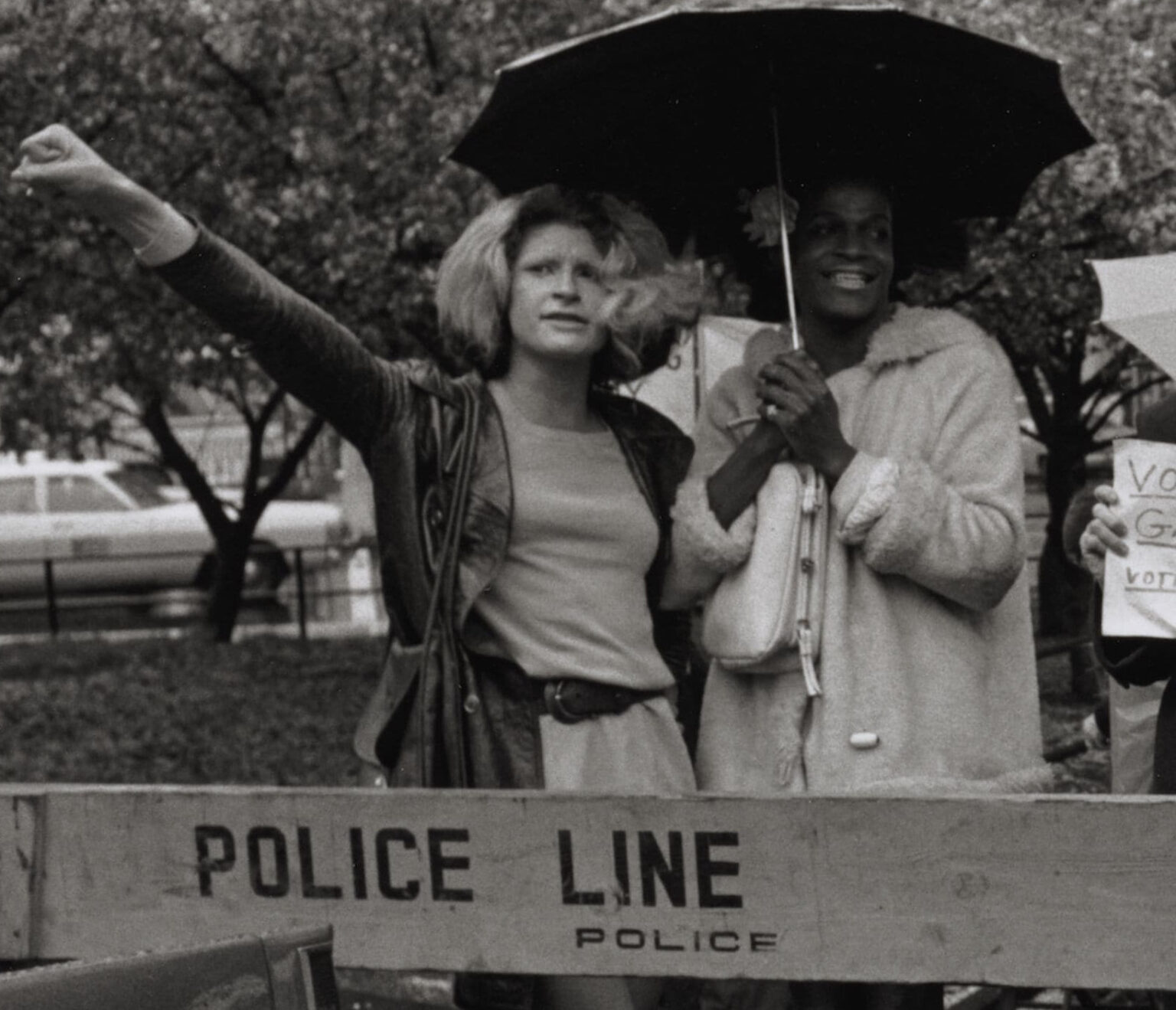
51 years since Stonewall: Marsha P. Johnson still inspires us all
While we may never know who actually threw the first brick at Stonewall, the legacy of Marsha P. Johnson still stands today. Outspoken & vibrant, Johnson used her voice to advocate for gay rights throughout her adult life.
The Stonewall Uprising was a key event in the gay liberation movement. On June 28th, 1969, a police raid at Greenwich Village gay club the Stonewall Inn sparked violent demonstrations that lasted until July 3rd.
Johnson’s participation at Stonewall was just the start of her activism, which continued to grow until her untimely and mysterious death in 1992. Her life was marked by her efforts to push for gay liberation while also being a performer in the NYC drag scene.
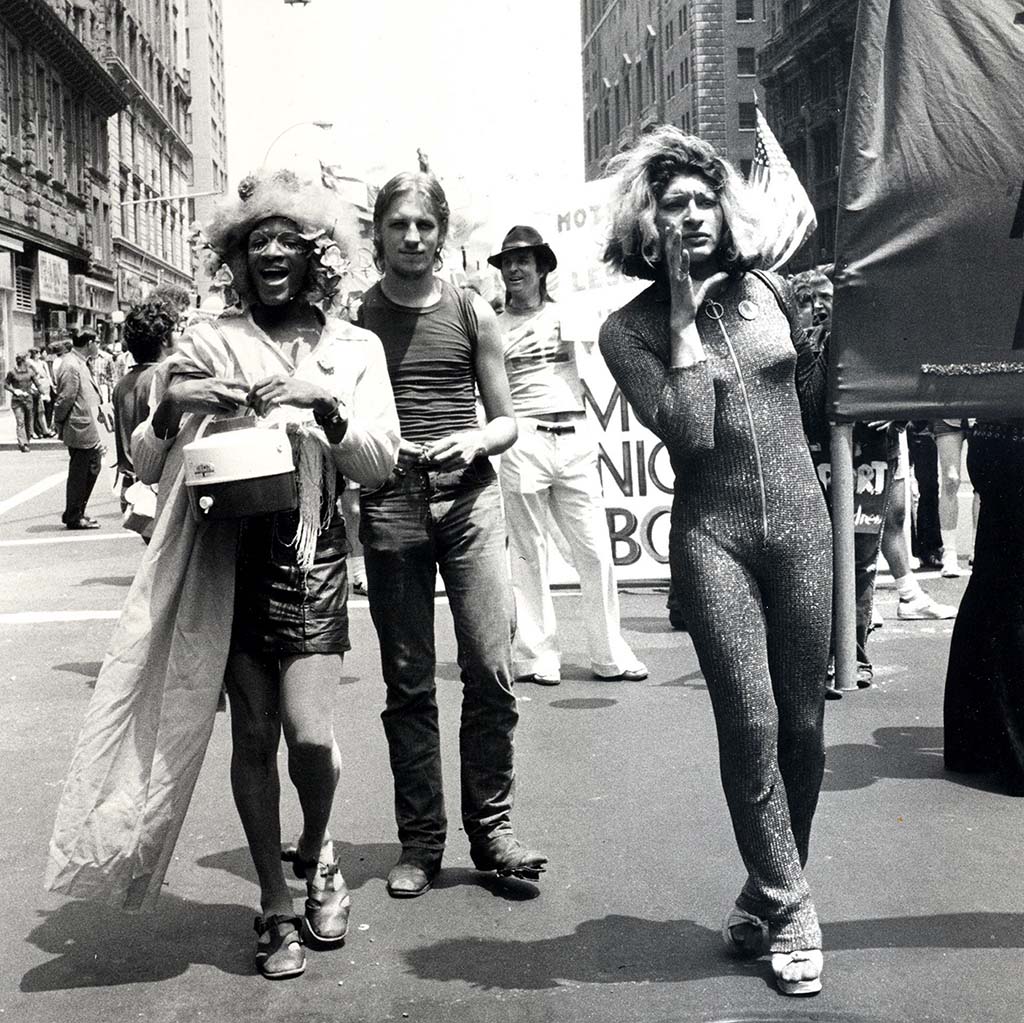
Since LGBTQ+ vocabulary wasn’t developed at the time, Johnson didn’t specifically define her identity. She called herself gay, a transvestite, and a drag queen at various points in her life. When asked about her gender, Johnson would point to her middle initial, “P” meaning “pay it no mind”.
At such a dangerous time for the LGBTQ+ community, Johnson’s actions would have been risky. But her continuous advocacy is a remarkable reflection of her inspirational spirit.
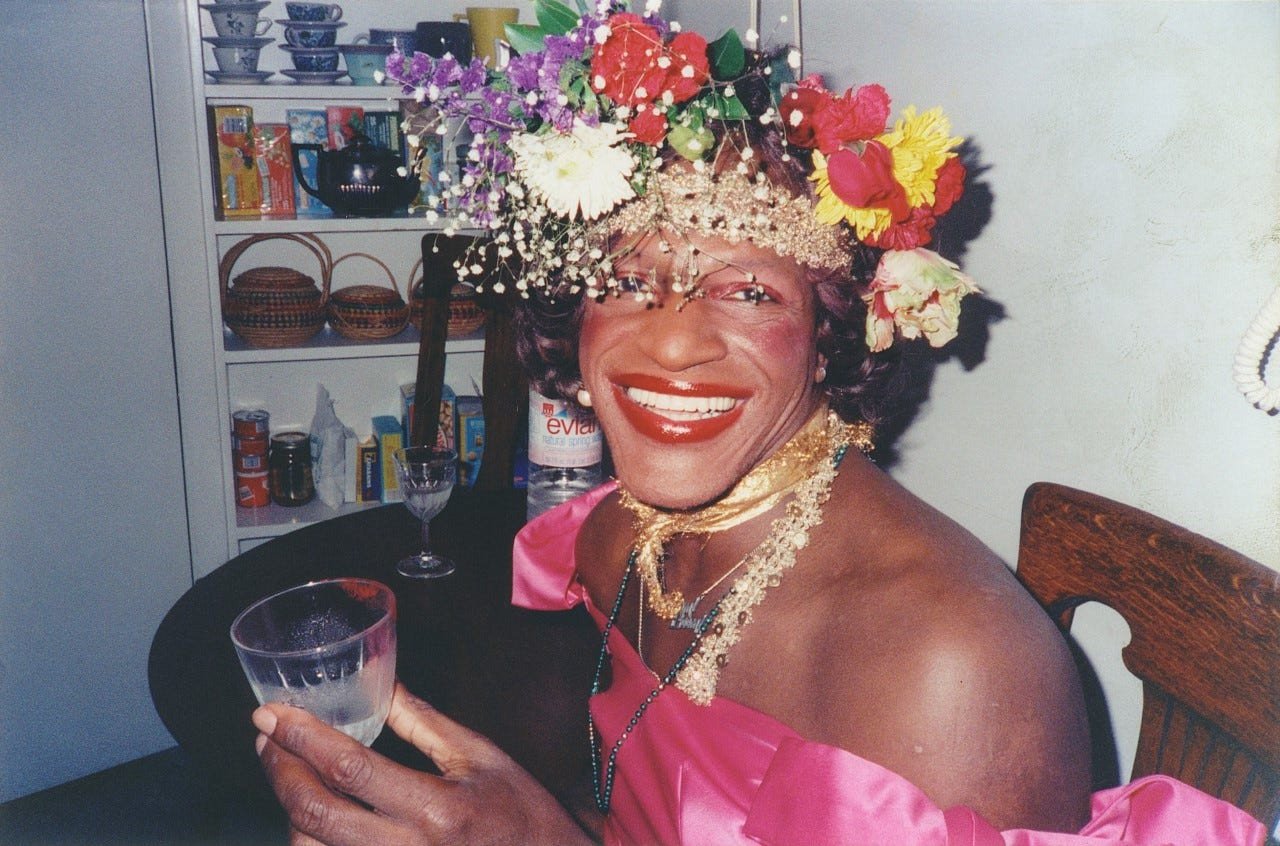
Marsha P. Johnson defied all odds
Johnson was a black queer sex worker & activist – who was also poor & homeless. Her friends reported she was frequently asking for money on the street. Johnson recalled in an interview that she couldn’t do “serious drag” because she didn’t have the means to buy the glamorous clothing and accessories needed.
And yet, Johnson exuded generosity, determination, and perseverance. Many have described her as being full of joy & love, which is immediately apparent if you see any of the interviews or archived footage of her drag performances. Despite the odds, Johnson had a marvelously vivacious personality that can be seen through her fierce activism.
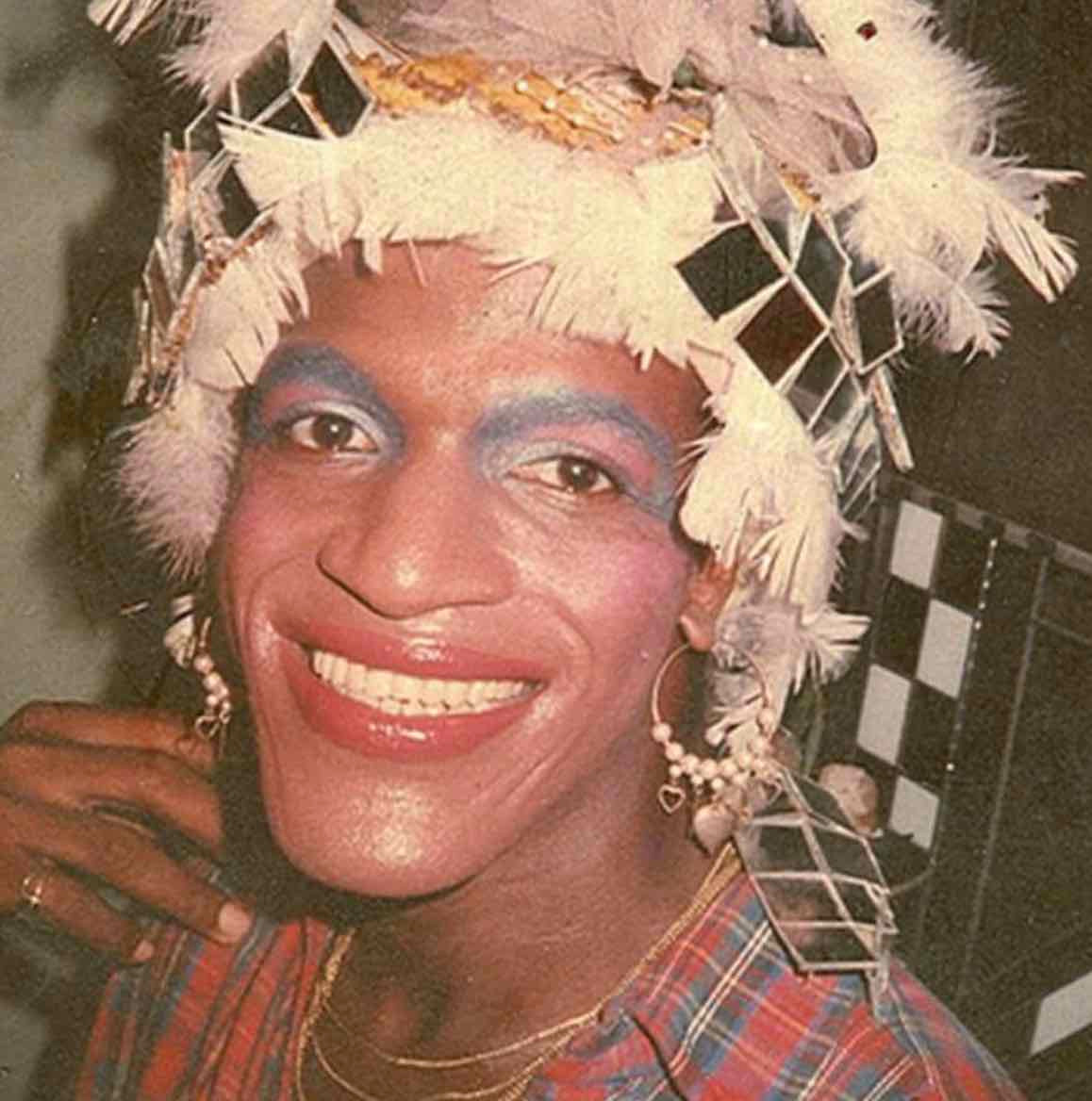
Marsha P. Johnson was a trailblazer
Johnson was a founding member of the Gay Liberation Front and the cofounder of Street Transvestite Action Revolutionaries (S.T.A.R.). Alongside her close friend Sylvia Rivera, Johnson would continue to make efforts to gain freedoms for the LGBTQ+ community throughout her adult life. Later in her life, Johnson would work with ACT UP in an effort to end the AIDS pandemic.
Johnson was also a member of the drag performance group Hot Peaches in the 1970s. This was the start of her popularity in the NYC drag scene. As more people came to know Johnson, she began to become known as the “mayor of Christopher Street” because of her work in Greenwich Village.
Johnson’s fame continued to grow, especially when she caught Andy Warhol’s attention. Warhol’s portrait of Marsha P. Johnson can be seen in his 1975 Polaroid series “Ladies and Gentlemen”, which featured drag queens & trans women.

Marsha P. Johnson was a survivor
Johnson’s gender identity was under scrutiny in her own community. While the 1960s were a time of change, the gay community didn’t always welcome drag queens or trans people, especially black trans women.
Johnson, Sylvia Rivera, and their peers were told to march in the back at many gay liberation parades because of their gender identities and relationship with the drag community. The fact that they refused and marched with the rest of the crowd is a testament to their perspicacity.

Marsha P. Johnson pushed through
Fellow activist Victoria Cruz thinks of Johnson as the Rosa Parks of the movement. Cruz claimed that “we would not take [the] backseat.”
Because of her sex work, Johnson was arrested so many times she lost count. She was even shot in the 70s. Johnson also suffered from mental health issues – but she still continued to attend parades & protests to speak out against discrimination until her death.

Marsha P. Johnson’s voice lives on
Johnson’s activist spirit continues to outlast her death. She spread joy with her performances, and her actions helped push the gay rights movement.
Unfortunately, Johnson didn’t live long enough to see Obergefell v. Hodges, which legalized same-sex marriage, or the more recent U.S. Supreme Court decision that bars employment discrimination based on sexual orientation & gender identity. But because of her work, LGBTQ+ rights were pushed to the forefront.
Johnson’s legacy lives on in today’s parades, marches, and activist protests. The movement might have fizzled without her activism and enthusiastic yearning for equality. She may have not admitted the impact she made, but Johnson’s efforts paved the way for the LGBTQ+ community.






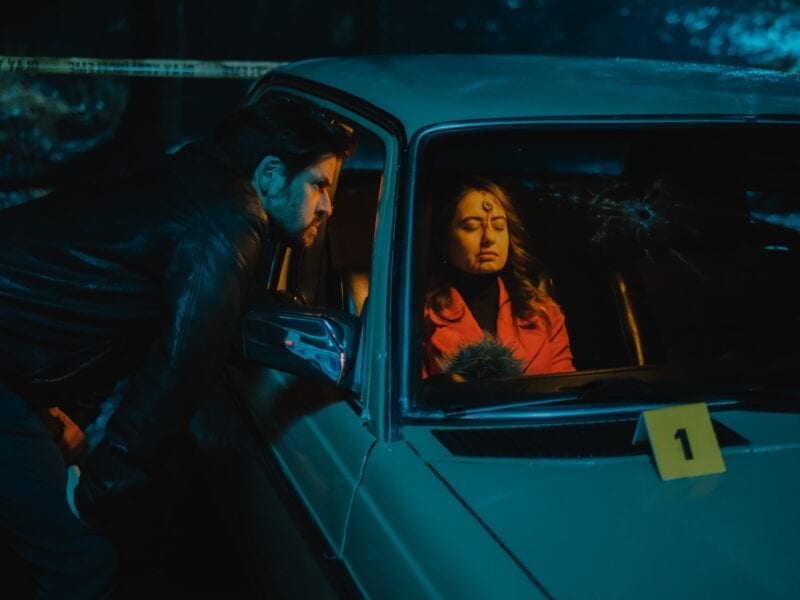
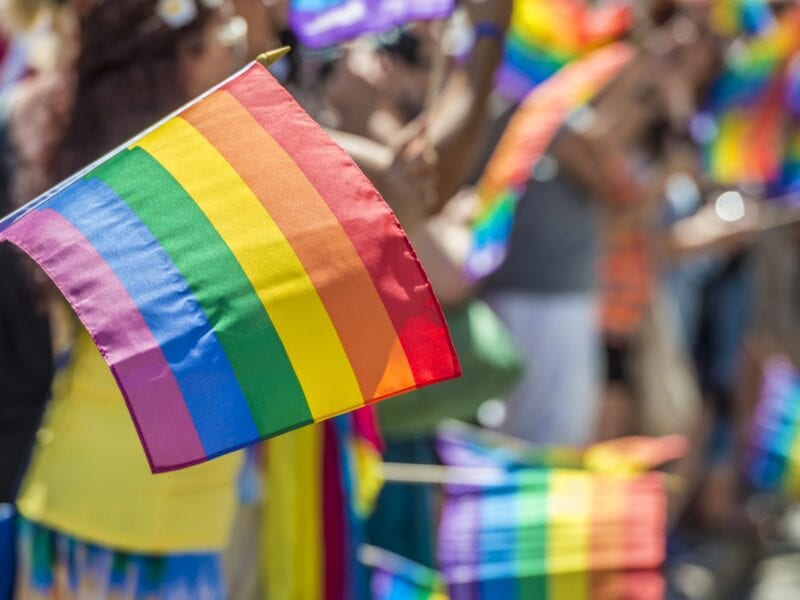
Valerie
/
What a beautiful soul ! She went through hell to stand up for so many to do what they can be today! acceptance! My love for her and my tears I shed just for her.
July 1, 2020